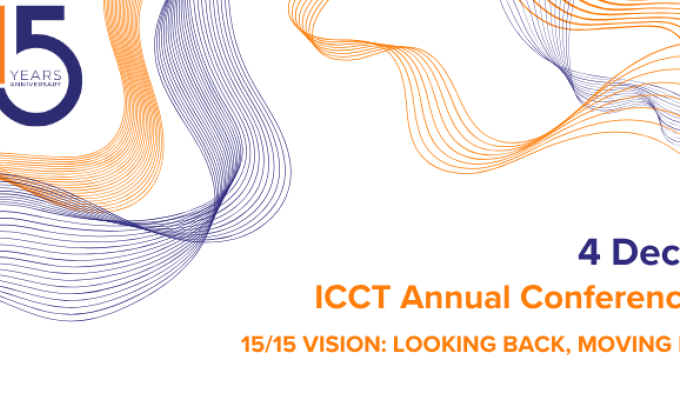Controversies about alleged blasphemy are as old as religion, and Europe has long been a theatre of modern blasphemy extremism. The murder of Dutch film-maker Theo van Gogh in 2004 can be seen as the beginning of increasing violent anti-blasphemy extremism in Europe, following the rise of the modern anti-blasphemy movement in the late 1980s in reaction to the publication of Salman Rushdie’s Satanic Verses.
In more recent years, Europe has seen several more incidents in which acts of perceived blasphemy, such as Quran desecrations or the public display of cartoons of the prophet Mohammad, led to protests, attack plots, and calls for murder. Security services are increasingly concerned about this trend, which leads to the question of suitable preventive and counter-measures and ways to hold individuals accountable.
Using examples from various European countries, this analysis sheds light on what blasphemy extremism looks like in Europe and the tools that are available to authorities to prevent and counter the phenomenon and to hold individuals involved in perceived blasphemous acts and anti-blasphemy activities accountable. In doing so, the analysis will first provide an overview of the underlying narratives and key actors of anti-blasphemy extremism in Europe. It will then move on to examine the effectiveness of some counter-measures adopted by European states, while highlighting their human rights implications, including but not limited to the rights of suspected individuals, the right to freedom of expression and peaceful assembly, and the right to freedom of religion.
Anti-Blasphemy Activism and Extremism
Anti-blasphemy activism is often understood as actions by Islamist actors who target perceived blasphemers as they consider them as a group that is threatening their freedom of religion. Anti-blasphemy extremism takes matters one step further as it involves hostility and potential violence against those allegedly insulting certain religious beliefs.
As seen in the murder of a teacher in France who showed the Charlie Hebdo caricatures of prophet Mohammad to his students in a class on freedom of expression, or death threats against a British teacher for showing caricatures of the prophet Mohammed in a class on religious studies, anti-blasphemy extremism by Islamist actors is of particular concern to security services. While it is often targeting non-Muslims, recent studies on anti-blasphemy extremism in the United Kingdom (UK) have shown that it can also target Ahmadi Muslims. In doing so, anti-blasphemy extremism has the potential not only to endanger individuals accused of blaspheme acts as well as their families, but also to contribute to polarisation in society when coupled with anti-blasphemy activism that can fuel extremist behaviour.
Anti-Blasphemy Narrative
At the bottom of the anti-blasphemy narrative targeted against non-Muslims lies the portrayal of Islam being threatened in its existence by Western societies which allegedly use democratic values such as freedom of speech to undermine Islam. While Muslims in conflict zones around the globe are confronted with violent acts targeting them for being Muslim, many Muslims in Western countries do not face these existential threats in their daily lives. That is where scandalising perceived acts of blasphemy can create the impression of structural threats against the Muslim community everywhere around the globe. The teachings of the late Anwar al-Awlaki, calling upon Muslims to take retaliation for acts by Westerners disrespecting Islam, also continue to inspire jihadists to commit violent attacks.
Acts of Anti-Blasphemy Extremism and Activism in Europe
Notably, anti-blasphemy narratives are used by various Islamist activists from different sects. Past incidents indicate that in the European context, there are two main actors of anti-blasphemy extremism and activism: Barelvi activists, often connected to the former designated terrorist group, now Pakistani political party Tehreek-e-Labbaik Pakistan (TLP), and jihadist activists, such as the Islamic State of Iraq and Syria (ISIS) and the Islamic State – Khorasan Province (ISKP). Both the Barelvi and the jihadist movement rely on a combination of online instigation through social media and platforms like YouTube, and offline networking. For example, in 2023, ISKP spread images and videos on their online media channels, calling for retaliations against Westerners desecrating the Quran, particularly those in Sweden and the Netherlands. At the same time, Dutch intelligence has observed increased networking between ISKP-affiliated individuals residing in the Netherlands. Similarly, Barelvi actors continue spreading anti-blasphemy narratives online and endorse individuals who previously took matters into their own hands and carried out violent acts against perceived blasphemers. In the UK, TLP-affiliated Barelvi groups are represented in local communities as leaders of mosques and are involved in organising protests against perceived acts of blasphemy.
The online propaganda of these actors is resonating particularly well with lone actors who are not (yet) affiliated with any party or terrorist group. Jihadist groups such as ISKP are well known for their up-to-date propaganda. On one hand, jihadist propaganda is accusing Western societies of hypocrisy in allegedly only using freedom of speech in defence of other ethnic or religious minorities but always against Islam. On the other hand, it features so-called “doxing” in relation to perceived acts of blasphemy, meaning that names, addresses, and other personal information of alleged blasphemers and their families are publicised. In connection to death threats that are commonly issued against alleged blasphemers, this practice can be life-threatening. However, jihadist propaganda usually comes in the form of primary sources, such as ISKP’s Voice of Khorasan. Hence, the materials are well-known among jihadist circles but less accessible to the common public. Extremist Barelvi propaganda, on the other hand, is more openly accessible, for example on YouTube.
Nonetheless, recent cases of anti-blasphemy violence in Europe have shown that jihadist propaganda on the matter resonates with a wider audience than extremist Barelvi content. In August 2024, German prosecutors, for example, indicted two Afghan nationals living in Germany, among others for membership in a terrorist organisation and conspiracy to murder. In cooperation with ISKP members abroad, the two men allegedly planned to shoot police officers and bystanders in proximity to the Swedish parliament as retaliation for Quran burnings in Sweden. A Syrian national living in Germany allegedly had similar plans. In October 2023, he was indicted for membership in a terrorist organisation and preparation of a severe state-threatening act as he allegedly prepared an explosive attack on a Swedish church in retaliation for Quran burnings.
To date, it seems that TLP-inspired acts of violent anti-blasphemy relevant to Europe are predominately carried out by individuals with connections to Pakistan. This relates to both offline actions, for example, attempted murders, as well as online instigation of murder and violence, for example by spreading calls for murder or endorsing past acts of physical violence against alleged blasphemers. The only known TLP-related incidents in the Netherlands were all conducted by individuals with Pakistani background. The first case in 2018 involved a young Pakistani national in the Netherlands who was convicted for the public instigation of the murder of Dutch politician Geert Wilders, leader of the Party for Freedom (PVV). More recently, two Pakistani nationals were convicted by a Dutch court in absentia in relation to instigating the murder of Geert Wilders following Wilders’ cartoon competition in 2018. Notably, a Pakistani religious leader was convicted for attempted and actual instigation and threats to murder a member of the Dutch parliament with terrorist intent, and sentenced to fourteen years imprisonment. Another Pakistani man, leader of the TLP, was convicted for instigation of the murder of Geert Wilders, and sentenced to four years imprisonment. However, the effectiveness of criminal prosecutions of individuals living abroad can be questioned as requests for legal assistance to Pakistani authorities in the case have not been executed and neither of the two is expected to be extradited to the Netherlands for serving the sentences.
Potential Counter Measures and Their Implications
In their attempt to respond to this threat, European governments have adopted a series of preventive and counter-measures to deter blasphemy, on the one hand, and hold individuals involved in anti-blasphemy activities accountable, on the other hand. Nevertheless, the efficiency of certain measures, as well as their compliance with human rights, is debatable. Indeed, such measures can have a serious impact on the right to freedom of expression, association, peaceful assembly and religion protected under the European Convention on Human Rights (ECHR). Although these rights can be subjected to certain restrictions, these should be prescribed by law and considered necessary in a democratic society.
Preventing and responding to perceived actions of blasphemy
Measures aiming at deterring blasphemy can include criminal justice responses, such as criminalising Quran burnings and prosecuting for group insult, blasphemy, and blasphemous libel offences. For instance, in December 2023, Denmark banned the “ inappropriate treatment” of religious texts, which includes burning, tearing or otherwise defiling holy texts whether in person or in videos intended for broad distribution. This law came as a response to security concerns following a series of Quran burnings in Copenhagen which resulted in tensions in Denmark and in Muslim countries. Similar incidents have led the Swedish government to currently consider a similar bill. However, the criminalisation of Quran burning and, more generally, of perceived blasphemy acts, raises controversy. Blasphemy laws attempt to protect the feelings of individuals and are in violation of the international human rights framework, including the freedom of expression and the freedom of religion or belief, two “mutually reinforcing rights”. Although there is still a large number of countries, including EU Member States, with blasphemy laws, their effectiveness is questionable. According to Elizabeth O’Casey, member of the OSCE/ODIHR Panel of Experts on Freedom of Religion or Belief, “countries that prosecute ‘blasphemy’ and ‘insult to religion’ tend to suffer disproportionately from inter-communal intolerance”. Instead of criminalising such acts, examples of prosecuting on the grounds of other offences have recently seen the light. For instance, in August 2024, the Swedish Prosecution Authority announced the prosecution of two men for “offences of agitation against an ethnic or national group” by burning the Quran. Additionally, in November 2024, the Malmö district court sentenced the Danish politician Rasmus Paludan to four months imprisonment for two counts of incitement against an ethnic group and one count of insult committed in 2022 when he had burnt copies of the Quran and made offensive statements about Muslims. In a similar case in the Netherlands, an individual was convicted and sentenced to a suspended sentence of forty hours of community service for “group insult” after having torn up the Quran.
Apart from criminal justice responses, administrative measures have also been adopted. For instance, in the Netherlands, under the Public Demonstrations Act, mayors can impose regulations and restrictions regarding demonstrations. Therefore, the municipality of The Hague prohibits the burning of any objects before, during, or after the demonstration. This can deter blasphemy acts, such as Quran burnings, and consequently prevent anti-blasphemy demonstrations and activities which can create tensions within the society. However, this restriction does not cover other vandalism acts, like tearing up objects.
A harmful practice that should be avoided is the “naming and shaming” of the perceived blasphemes. In the UK, such a tactic had life-threatening consequences for a teacher who included a caricature of the Prophet Muhammad in a course on blasphemy. Following protests and threatening messages against the teacher, they were suspended, and the school issued an apology. The suspension of the victim of a campaign of harassment who was forced into hiding as well as the lack of support from the school, the local police and the council suggests a kind of “sanctioning” for the perceived blaspheme which threatens, inter alia, their rights (and the ones of their family) to life and security. Similarly in France, a teenage girl received death threats after she posted an attack on Islam on her Instagram account. As a consequence, her family was placed under police protection, and the girl had to change schools. The controversy generated a debate in France, resulting in the French president’s intervention in her defence.
Preventing and responding to anti-blasphemy actions
Prevention initiatives, including outreach activities, and criminal justice measures have also been taken against individuals engaged in anti-blasphemy acts. An example of successful prevention includes the creation of the ‘Cartoon Working Group’ in the Netherlands, following the Mohammed cartoon riots in 2005 in Denmark. This group was coordinated by the Dutch National Coordinator for Counter Terrorism (NCTV) with the aim to signal and monitor events that could potentially lead to Danish cartoon-related situations in the Netherlands. It subsequently assisted with preventing tensions regarding the release of the Islam-critical movie Fitna. A coordinating mechanism was set up, including actors such as intelligence agencies, the police, ministries, and municipalities. Outreach activities informing about the position of the Dutch government in relation to Fitna were also organised. Additionally, Muslim communities in the Netherlands were in communication with the Dutch government and their leaders reached out to Muslim-majority countries. These outreach activities contributed to the mitigation of tensions in regard to Fitna’s release and proved to be an encouraging example to follow.
Regarding criminal justice measures, on 9 January 2024, the Spanish National Court sentenced two Pakistani citizens with connections to the TLP to two years and one day imprisonment for glorifying terrorism as they had shared videos on social media with calls to behead those who blaspheme against Muhammad. The judges considered that the messages disseminated by the accused pose a risk as they may reach individuals who either already hold radical views or are in the process of radicalisation and constitute “a stimulus to carry out other actions, that is, murders or attacks against any person or institution that they consider guilty of blasphemy”. Similar convictions have seen the light in the Netherlands regarding threats against PVV leader Geert Wilders, as mentioned in the previous section. Finally, in the UK, a Twitter user and follower of the TLP was found guilty and sentenced to more than five years imprisonment for terrorism offences after having published a picture of French teacher Samuel Paty's severed head, encouraging the beheading of teachers for blasphemy against Islam. Eight individuals are currently on trial in France on terrorism charges for Samuel Paty's beheading. Prosecuting individuals for anti-blasphemy acts under the condition that their human rights are fully respected is a solution compatible with the rule of law.
Conclusion
In recent years, anti-blasphemy extremism and activism in Europe have evolved from isolated events to a concerning trend that threatens individual freedoms and fuels polarisation and violence. Past incidents point at Barelvi extremists, often connected to the far-right Pakistani party TLP or jihadist groups, most prominently ISKP, as the main instigators of anti-blasphemy extremism and activism. Their underlying narrative of Islam allegedly being under existential threat from Western societies fuels extremist activities. Online propaganda is playing a crucial role in this regard, radicalising individuals across borders.
A range of tools are available to authorities to prevent and address the phenomenon and to hold individuals involved in blasphemous acts as well as anti-blasphemy activities accountable. Such measures include preventive strategies, criminal justice responses, and administrative measures. Nonetheless, not all measures are equally effective in addressing the different offline and online components of anti-blasphemy activism and extremism and should be constantly assessed for potential improvement. For instance, the ‘Cartoon Working Group’ in the Netherlands seems to have been a successful initiative while blasphemy laws are often counterproductive and incompatible with the international human rights frameworks.
As anti-blasphemy extremism is on the rise across Europe, it is crucial that all authorities are aware of the complexity of the phenomenon and keep a close eye on developments both online and offline. Fostering interfaith dialogue and promoting education on religious tolerance can help to mitigate overall tensions while administrative measures can mitigate imminent threats. Nonetheless, in applying administrative measures, states must carefully balance public safety against fundamental rights to freedom of religion, expression, association, and peaceful assembly. Without downplaying the concerns emanating from the phenomenon, the measures adopted should always be in compliance with applicable human rights frameworks and restrictions on fundamental rights should be strictly limited to those prescribed by law and considered necessary in democratic societies. Criminal justice responses can only be a means of last resort.
The authors would like to thank Dr. Alexander Meleagrou-Hitchens for his valuable insights and time. His expertise on the topic has greatly contributed to this analysis.
This article represents the views of the author(s) solely. ICCT is an independent foundation, and takes no institutional positions on matters of policy unless clearly stated otherwise.
Photocredit: MVolodymyr/Shutterstock









